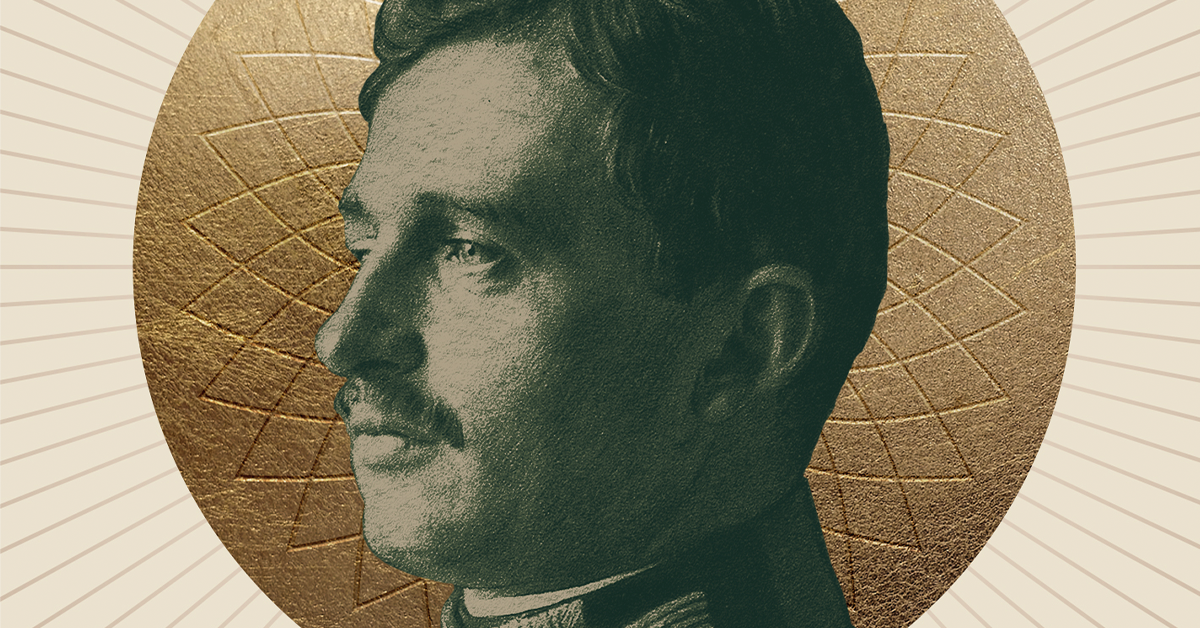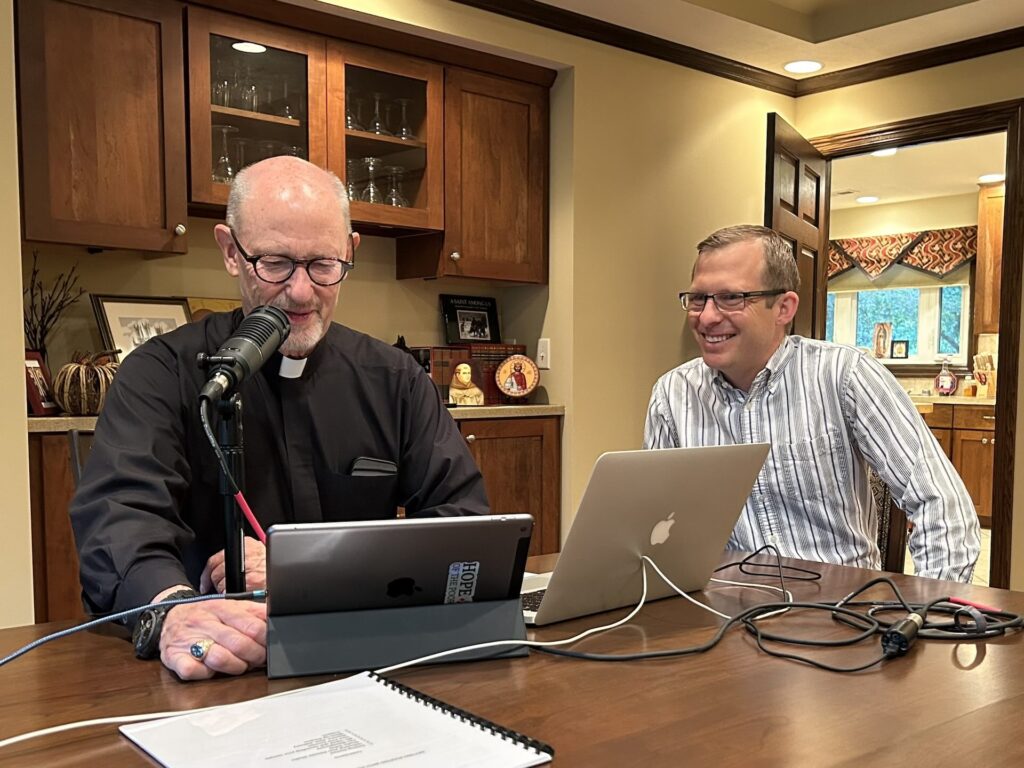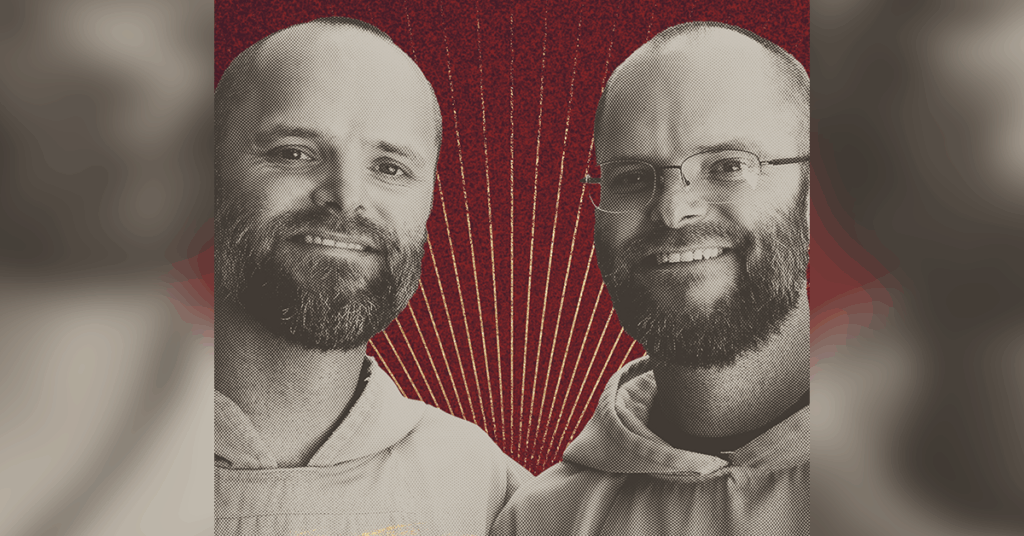BLESSED KARL’S ENGAGEMENT
By: Charles A. Coulombe
Now we must begin to help each other get to Heaven
—Archduke Karl to Empress Zita the day following their wedding.
Given that Bl. Karl’s feast day is not his death day – as with the vast majority of Saints and Blesseds – but the day of his wedding, it is obvious that his engagement and marriage are an important part of who he was. Certainly, the choice of a spouse is the most important question in anyone’s life – it can literally make or break a life. It was no different for Bl. Karl; but he had a certain disadvantage in this area.
Most people’s marital choices are partly determined by their own upbringing and the sort of couples their parents were. But Karl’s parents were spectacularly unsuited to each other. His mother, Princess Maria Josepha of Saxony, was a deeply pious Catholic; but she was also rather a dour lady. Her husband, Archduke Otto, had been a wild womanizer and drinker before his marriage, and soon resumed his old ways after the birth of his two sons. He was frequently gone after that, to his wife’s relief. In time he contrate syphilis. Otto lived apart from the family until the then incurable disease killed him.
Fortunately for Karl, his uncle, Otto’s older brother, Franz Ferdinand (who would be murdered with his wife at Sarajevo in 1914) became a second father to him. Having married for love and holding a thoroughly Catholic view of marriage, Franz Ferdinand and Sophie built a happy home. This was despite the fact that – because Sophie was not of royal blood – their children could not inherit the throne to which Franz Ferdinand was heir. This meant that after Franz Ferdinand, and after Otto’s death, Karl was the heir to the throne. A lesser man might have hated is nephew under such conditions; instead, Franz Ferdinand loved Karl, who followed his model.
So Karl needed to find a wife who, as with his Aunt Sophie and Franz Ferdinand, would share his vision of marriage and family; at the same time she must be royal on the one hand and yet attractive and loveable on the other. As it happened, one such lady did exist, whom he had known somewhat in his childhood, when her older brothers were his playmates: Princess Zita of Bourbon-Parma. He decided to propose to her. Many years later, Zita described the crystallisation of his resolve: “We were glad to meet again and became close friends. On my side feeling developed gradually over the next two years. He seemed to have made up his mind much more quickly, however, and became even more keen when, in the autumn of 1910, a rumour spread about that I had got engaged to a distant Spanish relative, Don Jaime, the Duke of Madrid.
“On hearing this, the Archduke came down post-haste from his regiment at Brandeis and sought out his grandmother, the Archduchess Maria Theresa (who was also my great-aunt) and the natural ‘confidante’ in such matters. He asked her whether the rumor was true and when told it was not, replied: ‘Well, I had better hurry or else she really will get engaged to some one else’”
Gordon Brook-Shepherd, The Last Habsburg, p. 18
Not long after this, his great-uncle, Emperor Franz Joseph, summoned Karl to Vienna for a serious conversation. False rumours had been flying around the capital linking Karl to various noblewomen and actresses. Still annoyed over Franz Ferdinand’s marriage ten years earlier, Franz Joseph told Karl he must choose a bride from one of the other European Imperial or Royal houses. Little did he know he would get his wish.
May of 1911 saw Archduchess Maria Theresa hosting Karl, Zita and two of her sisters at her hunting lodge in Sankt Jakob in Walde, in Styria. “It was here, during a week of beautiful May weather away from military duties and official work that Charles was able to get to know Zita. They spent long hours talking together and it was here that he proposed marriage to her. They were away from the nods and smiles and interest shown by others at balls and dances, and could be themselves” (Bogle, A Heart for Europe., p. 29). In 1922 place burned down, save its clocktower. On the site is a Gasthaus run by the Orthofer family – whose dearest possession is the Imperial table at which the couple sat; Zita herself would return here at age 91.
Their extended family on both sides were overjoyed. Zita was not only lovely, clever, and in every personal way popular, she was eminently qualified genealogically. Franz Joseph was particularly pleased with everything about her – not least her joyous personality. The official announcement was made of the engagement at Pianore on June 13, 1911 – the feast of St. Anthony. The wedding was set for Zita’s family home at Castle Schwarzau on October 21.
While their marriage would last only eleven years until Karl’s death on April 1, 1922, Zita would stay faithful to his memory and devote all her energies to continuing his familial, political, and religious causes until her own death in 1989. Young Catholic men looking for suitable mates would be well advised to pray to Bl. Karl for help in finding a good wife (as Catholic girls would do well in invoking Servant of God Zita’s help in the same cause).
PRAYER
O Blessed Emperor Karl, you accepted the difficult tasks and burdensome challenges that God gave you during your life. In every thought, decision and action you trusted always in the Holy Trinity. We pray to you to intercede for us with the Lord our God to give us faith and courage, so that even in the most difficult situations of our earthly lives we may not lose heart, but continue faithfully in the footsteps of Christ.
Ask for us the grace that our hearts may be moulded into the likeness of the Sacred Heart of Jesus. Help us to work with compassion and strength for the poor and needy, to fight with courage for peace in our homes and in the world, and in every situation to trustingly place our lives in the hands of God, until we reach Him, as you did, through Christ our Lord. Amen.
Imprimator: Archdiocese of Vienna, Vicar Apostolic Dr. Franz Schuster





